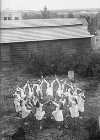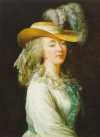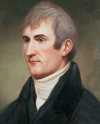 During the time of the Second Temple in Jerusalem (dedicated between 521 and 517 BCE), this was a Jewish folk festival in which young women would dress in white and dance in the vineyards, where young bachelors would come to choose their brides. According to the Talmud, the 15th day of Av was the day when members of different tribes were allowed to intermarry. Although in modern times there have been attempts by new settlements in Israel to turn this day into one of music and dancing, the idea doesn’t seem to have caught on. The Fifteenth of Av is marked only by a ban on eulogies or fasting. Discuss
During the time of the Second Temple in Jerusalem (dedicated between 521 and 517 BCE), this was a Jewish folk festival in which young women would dress in white and dance in the vineyards, where young bachelors would come to choose their brides. According to the Talmud, the 15th day of Av was the day when members of different tribes were allowed to intermarry. Although in modern times there have been attempts by new settlements in Israel to turn this day into one of music and dancing, the idea doesn’t seem to have caught on. The Fifteenth of Av is marked only by a ban on eulogies or fasting. Discuss
Source: The Free Dictionary
 Madame du Barry was the mistress of Louis XV. She was first the mistress of Jean du Barry, who introduced her into Parisian high society. Admired for her beauty, she joined Louis XV’s court in 1769 after a nominal marriage to Jean’s brother, a nobleman, qualified her to be Louis’s official royal mistress. Though she exercised little political influence, her unpopularity contributed to the decline of the prestige of the crown in the early 1770s. What happened to her during the French Revolution?
Madame du Barry was the mistress of Louis XV. She was first the mistress of Jean du Barry, who introduced her into Parisian high society. Admired for her beauty, she joined Louis XV’s court in 1769 after a nominal marriage to Jean’s brother, a nobleman, qualified her to be Louis’s official royal mistress. Though she exercised little political influence, her unpopularity contributed to the decline of the prestige of the crown in the early 1770s. What happened to her during the French Revolution?  As their final film-school project, two Czech students, Vít Klusák and Filip Remunda, perpetrated a massive hoax—and filmed it. Called Czech Dream, the 2004 documentary follows the pair as they convince a public relations agency to create an advertising campaign—complete with billboards, TV commercials, and a jingle—for the launch of a fake department store. It worked; 3,000 shoppers showed up to an empty field for the grand opening of the “store.” How did the customers react to the ruse?
As their final film-school project, two Czech students, Vít Klusák and Filip Remunda, perpetrated a massive hoax—and filmed it. Called Czech Dream, the 2004 documentary follows the pair as they convince a public relations agency to create an advertising campaign—complete with billboards, TV commercials, and a jingle—for the launch of a fake department store. It worked; 3,000 shoppers showed up to an empty field for the grand opening of the “store.” How did the customers react to the ruse?  Located off what is now the North Carolina coast, Roanoke Island was the site of the first English settlement in North America. Its original colonists, sent by Walter Raleigh, arrived in 1585 but stayed only a year. A second group led by John White arrived in 1587. Shortly thereafter, White returned to England for supplies. When he finally returned to the island, he found that all of the colonists had vanished. Their fate is still unknown. What possible clue was found carved into a tree there?
Located off what is now the North Carolina coast, Roanoke Island was the site of the first English settlement in North America. Its original colonists, sent by Walter Raleigh, arrived in 1585 but stayed only a year. A second group led by John White arrived in 1587. Shortly thereafter, White returned to England for supplies. When he finally returned to the island, he found that all of the colonists had vanished. Their fate is still unknown. What possible clue was found carved into a tree there?  This day, sometimes also referred to as Brother and Sister Day, is celebrated in some parts of India by brothers and sisters to reaffirm their bonds of affection, as well as to perform a ritual of protection. A sister ties a bracelet made of colorful threads and amulets, called a rakhi, on her brother’s wrists. The brother in turn may give his sister gifts—a piece of jewelry or money—while promising to protect her. In Nepal, it is a festival for both
This day, sometimes also referred to as Brother and Sister Day, is celebrated in some parts of India by brothers and sisters to reaffirm their bonds of affection, as well as to perform a ritual of protection. A sister ties a bracelet made of colorful threads and amulets, called a rakhi, on her brother’s wrists. The brother in turn may give his sister gifts—a piece of jewelry or money—while promising to protect her. In Nepal, it is a festival for both  After serving as a captain in the US army, Lewis became secretary to President Thomas Jefferson. When Congress approved a plan to find a land route to the Pacific Ocean, Jefferson selected his trusted associate, along with William Clark, to head the expedition. In 1807, Lewis was made governor of the Louisiana Territory. His sudden death—either by murder or suicide—in 1809, while on his way to Washington, DC, is still the subject of controversy. Why have requests to exhume his body been denied?
After serving as a captain in the US army, Lewis became secretary to President Thomas Jefferson. When Congress approved a plan to find a land route to the Pacific Ocean, Jefferson selected his trusted associate, along with William Clark, to head the expedition. In 1807, Lewis was made governor of the Louisiana Territory. His sudden death—either by murder or suicide—in 1809, while on his way to Washington, DC, is still the subject of controversy. Why have requests to exhume his body been denied?  The study of ancient Babylonian law, supported by thousands of primary sources that include contracts, deeds, and legal decisions, was greatly advanced by the discovery of a set of 282 laws known as the Code of Hammurabi. Created around 1760 BCE by the sixth Babylonian King, Hammurabi, the Code loosely divided the population into three classes and established an “eye-for-an-eye, tooth-for-a-tooth” style of punishment for criminals. What was the penalty for perjury?
The study of ancient Babylonian law, supported by thousands of primary sources that include contracts, deeds, and legal decisions, was greatly advanced by the discovery of a set of 282 laws known as the Code of Hammurabi. Created around 1760 BCE by the sixth Babylonian King, Hammurabi, the Code loosely divided the population into three classes and established an “eye-for-an-eye, tooth-for-a-tooth” style of punishment for criminals. What was the penalty for perjury?